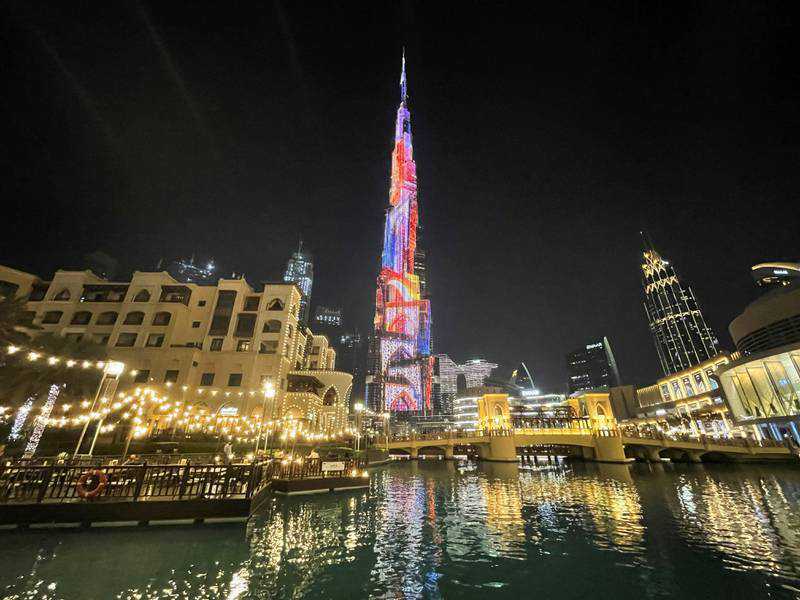Business activity in Arab world's two biggest economies continues to improve in October

Business activity in Arab world's two biggest economies continues to improve in October
Business activity in the non-oil private sectors of the Arab world’s two biggest economies continued to improve in October, boosted by the easing of Covid-19 restrictions, a rise in tourism and increased spending amid economic recovery.
Saudi Arabia’s IHS Markit Purchasing Managers’ Index was 57.7 in October, the second-highest reading recorded since the start of the pandemic. Despite slipping from 58.6 in September, it underlined a sharp improvement in the kingdom's business conditions. A reading above 50 indicates economic expansion, while anything below points to a contraction.
The drop in the headline PMI reading was largely driven by a slide in the new orders sub-index from its seven-year high in September, but it is still indicative of a substantial rise in sales. The upturn in demand was driven by a boost in spending in the domestic economy as the kingdom further eased pandemic-related restrictions, including those on travel.
New export work increased to the highest level since May on improving global trade flows, according to the businesses surveyed.
“October PMI data showed the non-oil sector recovering at a rapid pace,” David Owen, an economist at IHS Markit, said.
“Growth in output was the strongest seen for nearly four years, driven by a marked rise in client demand as the lifting of Covid-19 restrictions continued to boost economic activity.”
The sharp rise in output in October also helped businesses to reduce their work backlogs. Employment numbers also rose, continuing the growth sequence seen in each month since April. However, the rate of job creation was only marginal.
Purchasing activity also grew at the quickest rate in three months, as companies looked to support stock levels, with both input buying and inventories expanding sharply in October, according to the survey.
“The rate of purchase cost inflation sharpened during October, giving further signs that rising commodity prices are feeding through to firms' balance sheets,” Mr Owen said. “With confidence towards sales prospects running strong, businesses were able to pass on costs to customers, with the quickest rise in output prices since August 2020.”
In the UAE, the headline PMI reading climbed to 55.7 in October from 53.3 in September, underpinning a marked increase in new business during October, driven by rising spending amid the opening of Expo 2020. Output levels in the Emirates also rose at the strongest rate for more than two years, while business confidence also improved.
Sub-indexes of both new business and output reached their highest levels in more than two years, according to the latest data.
Businesses surveyed attributed the sharp improvement in business activity to Expo 2020, which helped to boost sales in a number of sectors as tourism strengthened and investment spending grew.
“The Expo 2020 finally began in the UAE … and brought a highly welcome upsurge in growth across the non-oil private sector,” Mr Owen said.
Forecasts for future output also improved considerably in October, amid hopes that the positive impact from Expo 2020 can be sustained. The overall degree of business optimism in the Emirates was the strongest since March 2020.
“The boost to sales led more companies to predict a rise in activity over the next 12 months as optimism jumped,” Mr Owen said.
Both the UAE and Saudi Arabia have recovered strongly from the pandemic-driven slowdown that tipped the global economy last year into its worst recession since the 1930s. Mass inoculation campaigns and the government fiscal support has helped businesses to recover.
The UAE has further eased pandemic-related restrictions on businesses and travel as the number of daily Covid-19 infection cases decline to below 100 from a peak of near 4,000 earlier in the year.
The UAE has administered more than 21.2 million doses of vaccines, enough to vaccinate more than 98 per cent of the country's population. So far in Saudi Arabia, 46.1 million shots have been administered, enough for almost 68 per cent of the kingdom's population, according to Bloomberg's vaccine tracker.
Meanwhile, business conditions in Egypt's non-oil private sector economy decreased slightly in October. The headline PMI reading declined to 48.7 in October, down from 48.9 in September and it's the lowest level since May.
A widening of the supply chain crisis in October and a lack of inputs led to contraction in output and the sharpest increases in both costs and charges. Export sales fell at the fastest pace in 17 months, although an ongoing recovery in local sales meant that demand conditions remained relatively buoyant.
“The Egyptian non-oil sector's recovery was stemmed in October as supply chain problems worsened around the globe. Having previously been less impacted than Europe and other regions, Egyptian firms started to feel the burden of material shortages on both output and inventories,” Mr Owen said.
“This will likely spill over into further reductions in output by the end of the year.”
Previous Story
- About 96% of UAE workers want to use...
- Emirates airline to recruit 6,000 staff over next...
- One of the world's most closed-off nations to...
- From Angkor Wat to Havana, the travel destinations...
- Apple Sees A Decline In Fiscal Fourth Quarter...
- Singapore reopening to travellers from 9 countries: no...
- Ikea offers employees one-off bonus following Covid sales...
- COVID isolation hurting Hong Kong's reputation: industry group